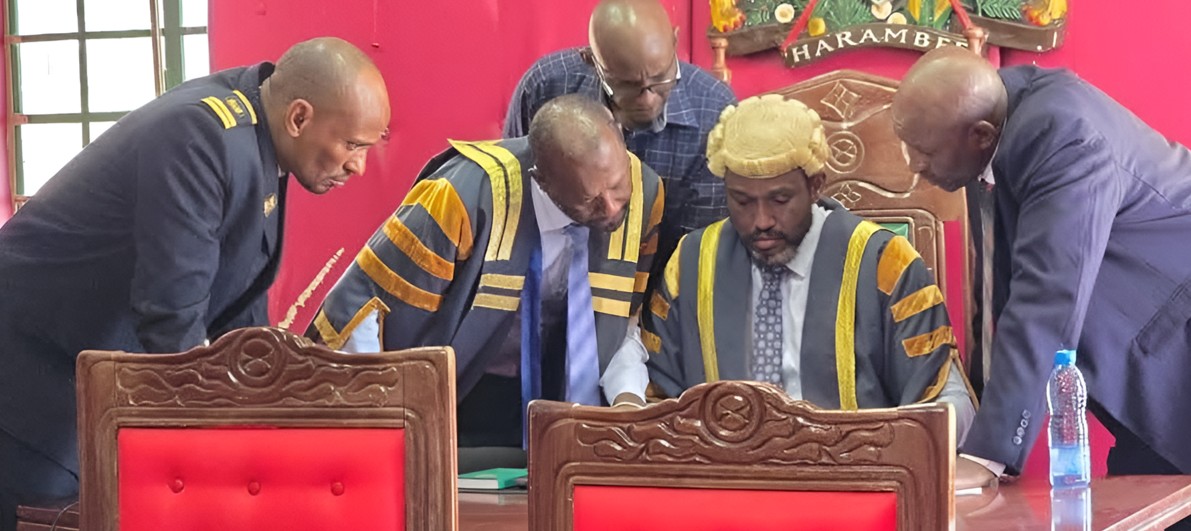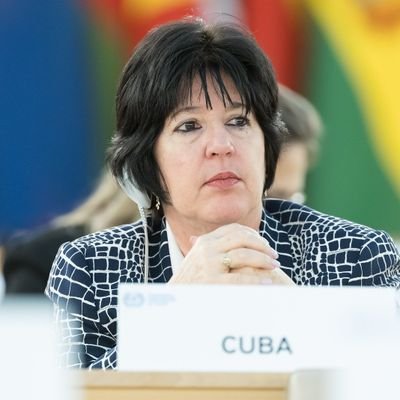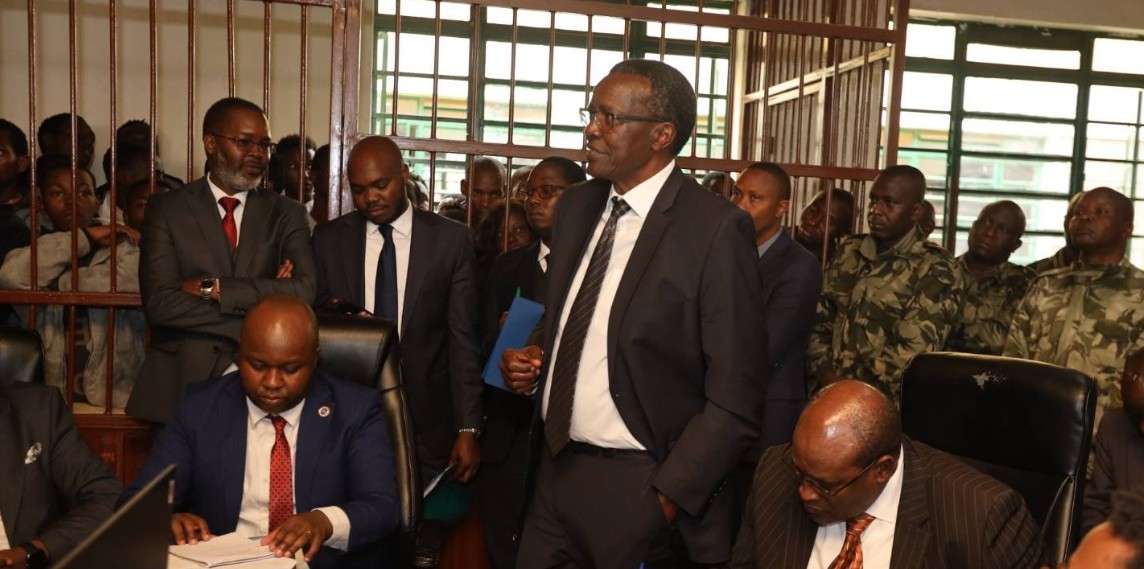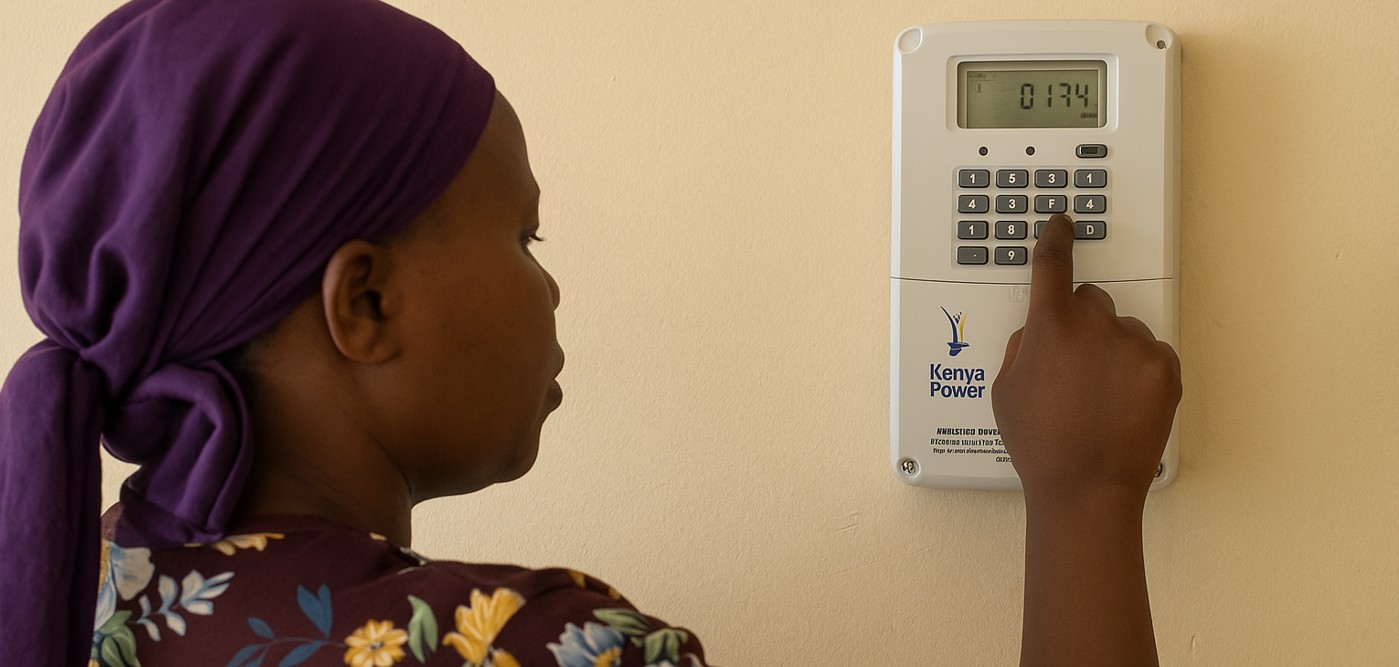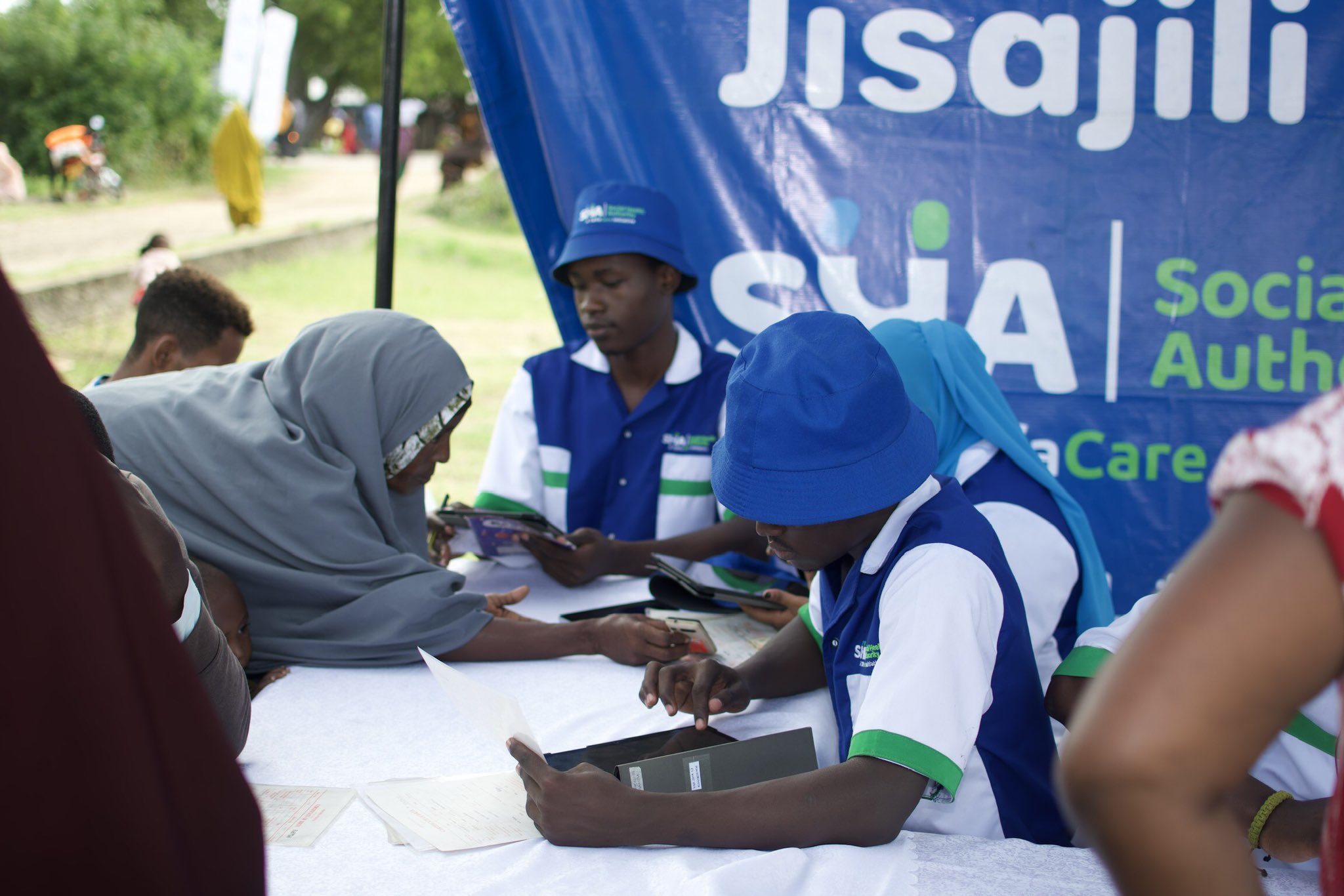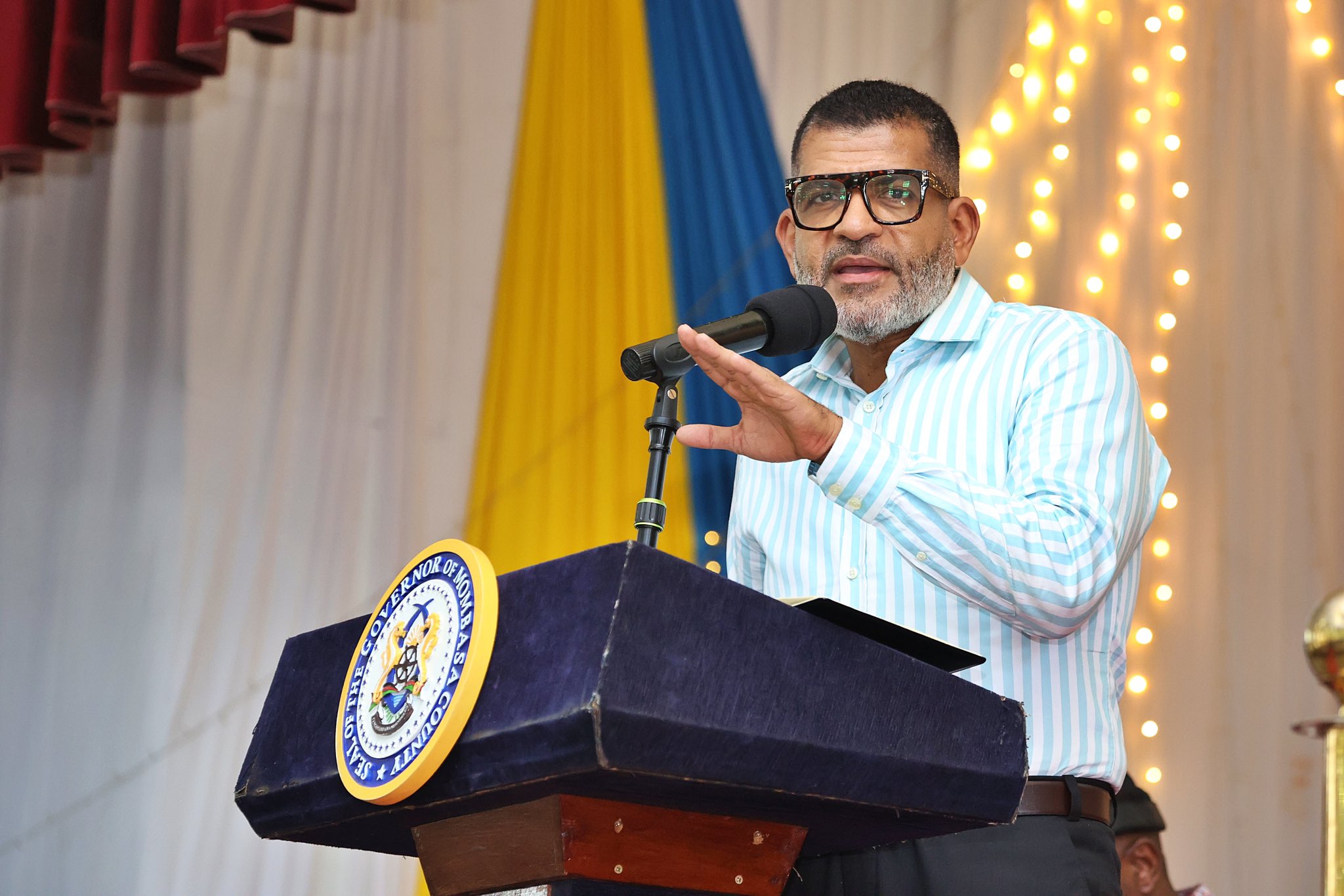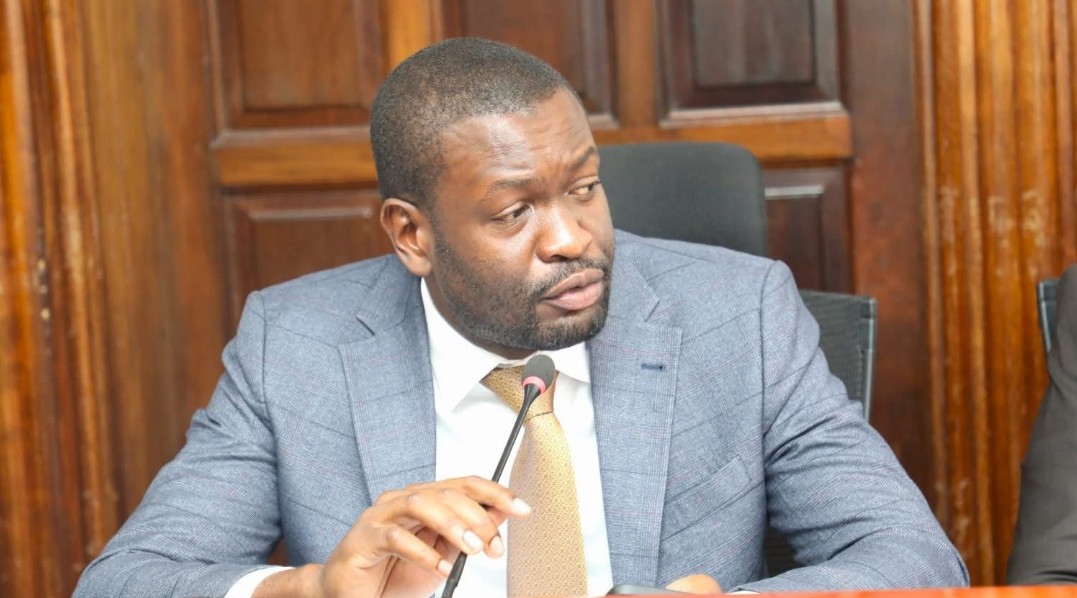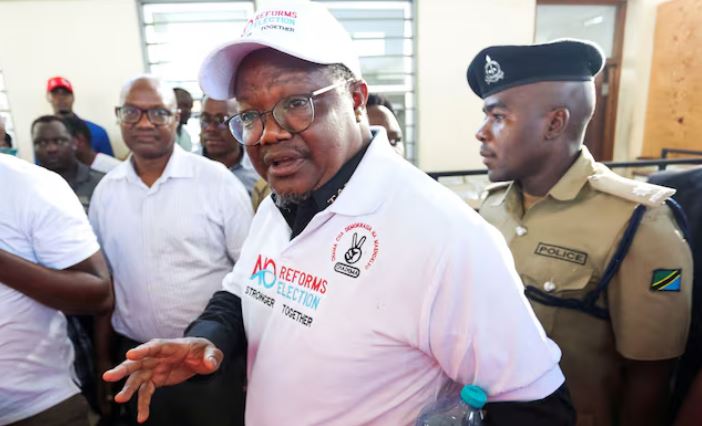New regulations seek to hold into account firms whose products pollute rivers
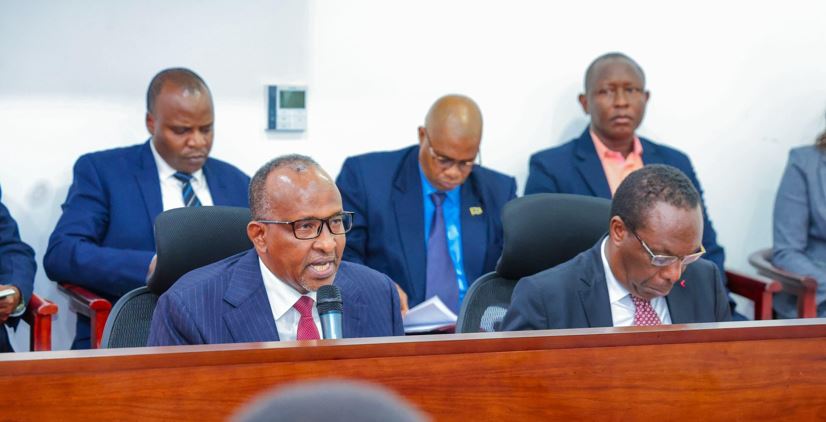
The move to hold manufacturers accountable is part of a broader government effort to restore Nairobi's river systems.
To curb the growing pollution in Kenya, especially along rivers, the government is now turning its focus to large corporations.
Environment Cabinet Secretary Aden Duale on Friday tabled new regulations before the Senate that seek to make businesses responsible for cleaning up plastic waste.
More To Read
- Vehicle emissions, burning hospital waste now Africa’s biggest air pollution threats, experts warn
- Africans survived 10,000 years of climate change by adapting food systems – Study offers lessons for modern times
- Africa’s environment ministers convene in Nairobi over climate action
- Africa’s freshwater ecosystems depend on little creatures like insects and snails: Study maps overlooked species
- Can you trust climate information? How and why powerful players are misleading the public
- Kenya slumps in green energy transition, falls 18 places in global rankings
Companies, both local and international, found polluting rivers will either be required to clean up the waste themselves or pay for its removal.
Appearing before the Senate Committee on Delegated Legislation, CS Duale unveiled seven new regulations under the Environmental Management and Coordination Act and the Sustainable Waste Management Act.
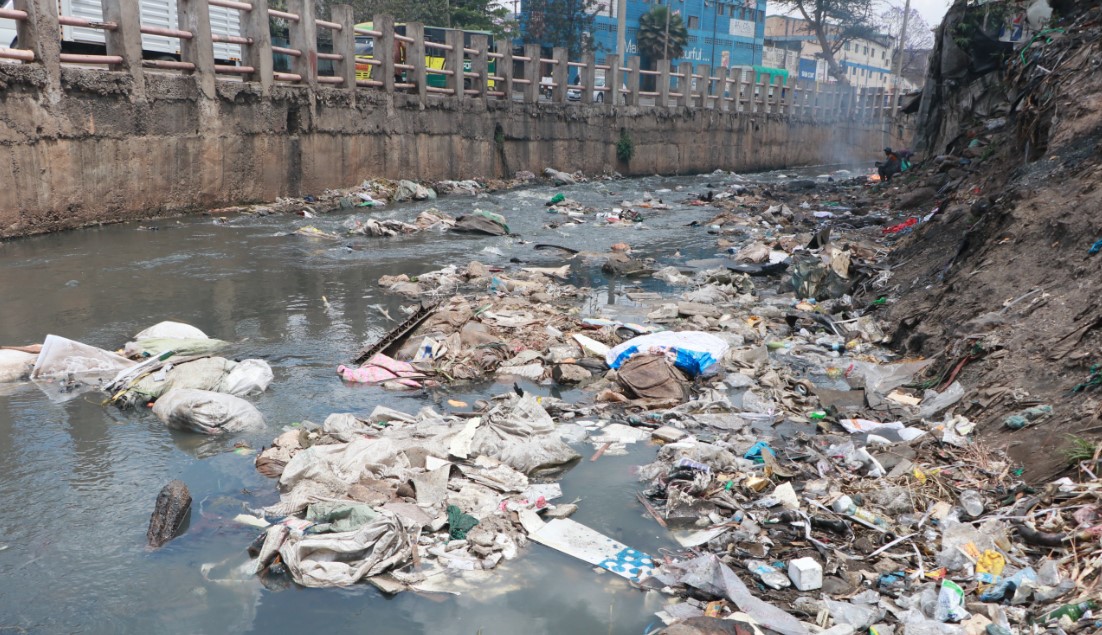 Garbage floats on the Nairobi River on November 14, 2024. (Photo: Justine Ondieki)
Garbage floats on the Nairobi River on November 14, 2024. (Photo: Justine Ondieki)
Among them is the Extended Producer Responsibility (EPR), a regulation that puts the responsibility on manufacturers to clean up the mess they create.
Under this regulation, companies that produce goods, such as beverages or dairy products, will be required to either clean up waste generated by their products or pay for the cleanup if their packaging ends up as waste in the environment.
CS Duale made it clear that the government would no longer blame individual citizens for polluting with waste from recognisable brands.
"If we find a package, for example, from a milk-producing company or bottles from a particular beverage-producing company, in that river as waste, we will not go and deal with the Kenyan who brought that waste. We will look for the producer," he explained.
The regulation also places the responsibility on brand owners, meaning the companies that produce goods like milk or beverages, to take action.
The National Environment Management Authority (NEMA) will enforce the law, requiring these companies to clean up polluted areas or face penalties.
"This extended producer responsibility happens everywhere in the world. It is not new, and it is the law," Duale said.
This move is part of a broader government effort to restore Nairobi's river systems, which have been plagued by pollution for years.
Last month, Duale revealed that NEMA's assessments found that over 145 factories and apartment complexes along the Nairobi River were major contributors to its pollution.
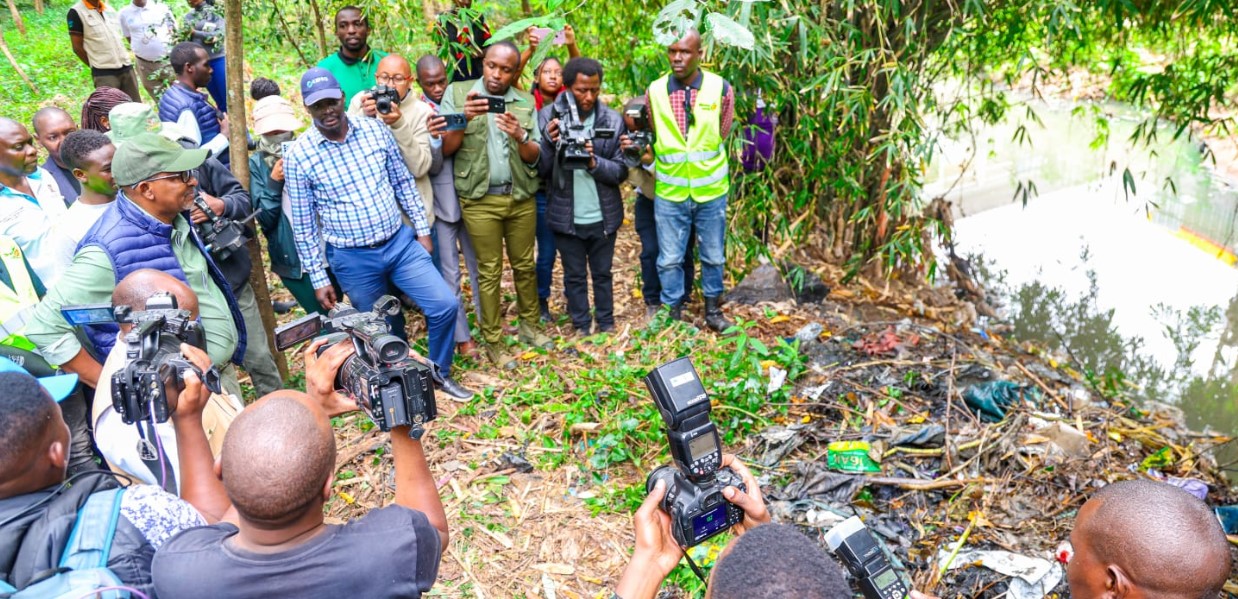 Environment CS Aden Duale, on October 10, 2024, inspects a section of the Nairobi River that passes through the Nairobi Arboretum. (Photo: Ministry of Environment)
Environment CS Aden Duale, on October 10, 2024, inspects a section of the Nairobi River that passes through the Nairobi Arboretum. (Photo: Ministry of Environment)
The EPR concept has been gaining traction worldwide, with Kenya's adoption of this policy mirroring successful global efforts.
The Kenya Plastic Action Plan, launched in December 2019, further emphasises the commitment of producers within the plastics sector to take responsibility for their products' waste.
The regulation is grounded in the "polluter-pays principle," which holds manufacturers financially, organisationally, and physically responsible for the waste their products generate.
The Sustainable Waste Management Act, specifically Section 13(1), clearly states that every producer is responsible for reducing the environmental impact of the products they sell in Kenya.
While the government has made strides toward holding businesses accountable, CS Duale has also issued a stern warning to factories discharging waste into the Nairobi River. Those failing to comply with environmental regulations face the possibility of being shut down.
"Factories that are producing waste into the Nairobi River will be closed if they don't comply with the Ministry's environmental regulations," he stated.
Top Stories Today



